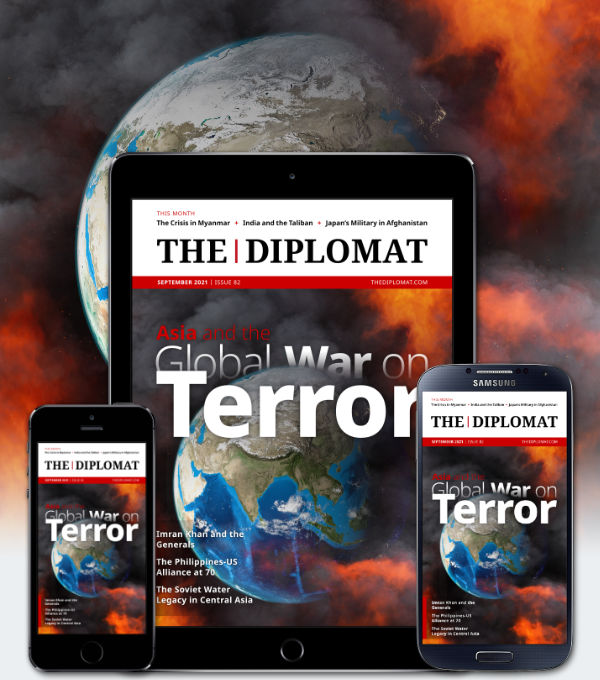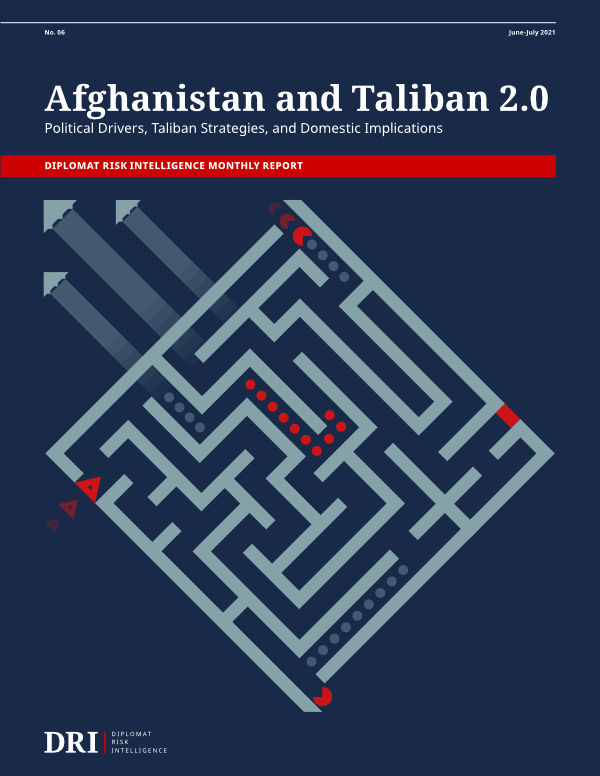| Welcome to the latest issue of Diplomat Brief. This week our top story looks at the problem of fake vaccine certificates in Pakistan. We also have an interview with Sandy Gall, a renowned British journalist who embedded with Ahmad Shah Massoud during the Soviet occupation, about Massoud’s legacy and resonance in Afghanistan today. |
| Story of the week |  | Society Pakistan’s Fake Vaccine CertificatesWhat Happened: In late July Pakistan began requiring COVID-19 vaccination for individuals to work in offices, eat at restaurants, and travel. The pressure worked – over 14.2 million vaccine doses were administered in July, with the number more than doubling in August, as per government data. But it also had a troubling side effect: a booming black market for fake vaccine certificates. Our Focus: One WhatsApp text, seen by The Diplomat’s Karachi-based correspondent Niha Dagia, advertised a fake vaccination certificate for Sinopharm at 6,500 Pakistani rupees while Sinovac and CanSino cost 6,000 rupees each, and Moderna was selling for 12,000 rupees. “At least 41 arrests have been made in the past two months” in related cases, a government official privy to the development told The Diplomat. “The Federal Investigation Agency is also tracking individuals who acquire fake certificates.” What Comes Next: Pakistan’s health officials emphasized that the proportion of fakes is “very, very small,” and this issue is certainly not unique to Pakistan – countries around the world are struggling with fake vaccine cards. But it’s a particular concern in Pakistan, where anti-vaccine sentiment has always been high. Just witness Pakistan’s ongoing struggle to eradicate polio, when a safe, effective vaccine has been available for over 70 years. COVID-19 adds new pressure on Pakistan to address the long-standing issue of vaccine hesitancy. Read this story |
| Behind the News | INTERVIEW Sandy GallSandy Gall, a British journalist and author of the book “Afghan Napoleon,” on Ahmad Shah Massoud’s assassination in 2001: “There is no doubt that his assassination two days before the attacks of 9/11 was by design. Osama bin Laden had offered to Mullah Omar to remove Massoud, who was his most significant rival and the main obstacle standing before the Taliban's aim to conquer the whole of Afghanistan.” Read the interview |
| This Week in Asia | Northeast Asia Japan’s Next Prime MinisterThe LDP has selected a new president – and, as a result, Japan will have a new prime minister as of October 4. Former Foreign Minister Kishida Fumio won the September 29 LDP poll in a runoff with Kono Taro, after a razor-thin first round vote. What can we expect from Kishida on Japan’s economic and foreign policy? Find out more | South Asia Sri Lanka’s Food CrisisSri Lanka’s government has declared a state of emergency in response to soaring food prices. Critics say the high prices are artificial, induced by government restrictions on food imports in an attempt to keep Sri Lanka’s current account above water. Food hoarding and corruption are also problems. But for the average Sri Lankan, the causes matter less than the reality: high prices and long lines to buy staple foods. Find out more | Southeast Asia Thai Tourism Takes Another Step Toward ReopeningFrom Friday, Thailand will cut its 14-day COVID-19 quarantine requirement for foreign visitors to just seven days, in a bid to revive its tourism industry, which contributes up to a fifth of the country’s GDP. Under the new rules, visitors will need to have a proof of vaccination for COVID-19 and return two negative tests during their quarantine. Coming after the successful introduction of the “Phuket sandbox” scheme in July, Thailand is eyeing a full return to normalcy in early 2022 – if COVID-19 doesn’t once again intervene. Find out more | Central Asia Who Speaks for Afghanistan?As the U.N. General Assembly wrapped up this week, no one took to the podium on behalf of Afghanistan. In a last-minute decision, the Afghan U.N. ambassador appointed this summer by the Ghani government withdrew from the General Debate speeches. The Taliban want Afghanistan’s U.N. seat, but Western countries see international recognition as one last point of leverage with Kabul’s new masters. Find out more |
| Word of the Week | ECONOMY 갑질Gapjil, a South Korean neologism that refers to an abuse of power – whether committed by a multinational tech giant or an individual. Find out more |
|  |





